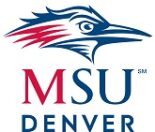

As you start thinking ahead to your college education, the financial implications may weigh on you. While there’s no denying higher education is costly, it is an investment that can pay big dividends.
Thankfully, people have several options to help them make the cost more affordable and the degree more attainable.
How to Pay for College
Planning for college means planning for finances. From grants to scholarships, here are eight different ways to help cover your college expenses.
FAFSA
 The Free Application for Federal Student Aid (FAFSA) is the starting point for all federal financial aid programs. This application determines your financial need and eligibility for federal loans, grants and work-study programs.
The Free Application for Federal Student Aid (FAFSA) is the starting point for all federal financial aid programs. This application determines your financial need and eligibility for federal loans, grants and work-study programs.
Many states will also look at the FAFSA to make determinations about state aid programs. Though it is not required for private grants and school-based financial aid, some organizations use FAFSA data to make their decisions as well.
Fill out the FAFSA early in your journey as you look for ways to pay for college and you will position yourself to receive the maximum aid possible.
Grants
A grant is the best way to pay for college if you can get one, since you don’t have to pay it back. It has no costs other than the time it takes to apply. Four types of grants are available to college students: federal grants, state grants, school grants and private grants.
Federal grants come from the federal government and are usually based on financial need. The Pell Grant is the most common one. Some federal grants, like the Teacher Education Assistance for College and Higher Education (TEACH) grant, are for students pursuing a particular area of study.
State grants are similar but are from state governments. They encourage students to go to college in their home state. Colorado has several options for students to apply for, including the College Opportunity Fund available to all residents enrolling in participating higher educational institutions.
School grants come from the school itself. These are often from private donors who want to encourage people to attend that school. There are grants for everything from purchasing a laptop for college to a specific school of study within a college program.
Private grants come from businesses and organizations that want to foster study in a particular area or award the children of their employees. You can usually find these by following programs in line with your interests and related organizations involved with philanthropic efforts.
Scholarships
A scholarships is similar to a grant in that it is money you don’t have to pay back. However, they typically are awarded based on merit, such as grade point average or community service, rather than financial need.
Scholarships come from colleges or through private organizations. Most students find scholarships through a school’s Office of Financial Aid or through organizations in the field they intend to study.
Work Study
The Federal Work Study program gives funds to schools to pay workers hired from their student body. These funds may also go to students who work off-campus in community service areas or areas related to their course of study.
Federal Work-Study is similar to a job in that the student receives money in a paycheck rather than direct allocation to their school bill. To be considered, you will need to show financial need and apply for the Work-Study program through your school.
Tap into Savings
For some people, pre-planning college costs for themselves or their family can be a financial option. If you are just starting to save for college and are planning ahead, there are a few tools to consider. A 529 plan or a Coverdell Education Savings Account can both provide tax benefits for people saving for college for their children.
Apply for a Federal Loan
The federal government offers a few student loan options. These are different than grants because you are required to pay them back with interest.
The federal government has four different loan programs. These are:
- Direct Subsidized Loans – for students who demonstrate financial need.
- Direct Unsubsidized Loans – for students who need a loan but do not have demonstrated financial need.
- Direct PLUS Loans – For students who do not have financial need but do have strong credit.
- Direct Consolidation Loans – A loan that combines student loan debt into one payment.
The U.S. Department of Education is the lender for each of these loans. You may have a period of no interest on the loan while you are in school, but you will have a set time after graduation to start paying back the loan. These loans are sometimes called Stafford loans.
Apply for a Private Loan (A Last Resort)
If all else fails and you need more money for college, you can consider a private loan. These come from private lenders, like banks, and are based on credit worthiness. You may have to have a parent cosign for this loan, especially if you do not have much credit yet
This should be considered a last resort because private loans can be expensive and substantially impact your credit score. Also, the interest rate on a private loan can be high, especially if you have no collateral, like home equity, to put behind them.
Concurrent Enrollment
Concurrent enrollment is a dual enrollment program that allows you to get college and high school credit simultaneously. Often, these programs have a more affordable tuition than taking the same class in college. Colleges offer these programs as a bridge between high school and college life, which is a great way to lower the overall cost of your college experience.
Is a College Degree Worth It?
Though there are many ways to make college affordable, at the end of the day you will be investing time and money in your education if you go to college. Is that investment worthwhile?
For most people, the answer is yes. A college degree increases your earning potential and the chance that you will have a happy and productive life, making it a good choice for investing in yourself.
Metropolitan State University of Denver provides a wide range of study options for students. Our Office of Financial Aid and Scholarships can help you make your college education as affordable as possible.
MSU Denver also offers an option to build your own degree, giving you a fully customized education that meets your specific needs.
To learn more about MSU Denver’s programs, reach out to an admissions counselor today.
Read more about MSU Denver’s initiative to expand financial access for students in the Roadrunner Promise program by locking-in tuition rates and covering tuition and fees as part of the Native and Indigenous Peoples’ Grant.

